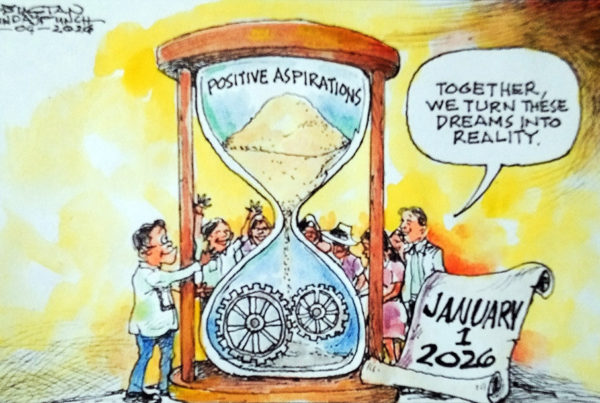Editorial
Who’s paying for the fiesta?
IT has been said that everyday, you can be sure there is at least one fiesta being celebrated somewhere in the Philippines. It could be the grand provincial- or city-wide kind of bash, which are even endorsed by the Department of Tourism as among the country’s attractions, or a party confined to a little barangay, which does not necessarily mean it is not lavish by sensible standards.
The local Government Code of the Philippines, specifically Title 5-Local Fiscal Administration wherein budget and spending rules are laid out, does not categorically state that local government units cannot use public funds for activities related to the celebration of a fiesta. In fact, the only mention of a fiesta in the Code relates to guidelines on the closing of roads for activities related to these festivities. But the Commission on Audit has ruled that LGU funds are not to be spent for fiestas, particularly in its audit report of Binmaley’s 2011 finances. A similar COA ruling was handed out to the town of Lagonoy in Camarines Sur, wherein the municipal government was questioned on a P1.4 million spending for its 2011 Samhod Festival. It is common knowledge that most, if not all, LGUs do draw from public funds for their fiestas (on top of the handfuls that are supposedly donated by politicians or solicited from private citizens, and businesses). And so the question begs to be asked: Why isn’t every barangay, municipality, city and province being put to task by the COA on this matter? And while the COA is at it, why don’t citizen groups check on potential fiesta-related corruption cases.
Back in 2008, Zambales Representative Antonio Diaz, then chair of the House committee on veterans affairs and welfare blasted the fiesta culture of Filipinos as he called for spending limits on these celebrations. He said: “People squander precious time and money to stage needless celebrations. Moreover, donations are being asked from various sectors to finance stage shows, beauty contests and other unproductive activities… It is the State’s duty to redirect the time, effort and finances of its people to more productive ventures… It is also the State’s duty to impart into the hearts and minds of people a more profound understanding of the importance of national and historical events.”
* * * * * *
Treason
WE find it harsh for Juan Ponce Enrile to accuse Antonio Trillanes IV of treason when Trillanes tried to help defuse tension at the disputed Scarborough Shoal early this year. For one, Trillanes did not do it without the imprimatur of President Aquino; whether he went to China just once or 16 times is even immaterial. He was on a mission, period. For another, it doesn’t matter if Trillanes offered Malacanang his services or not. The fact that he represented the country was enough reason he had the full backing of Mr. Aquino. So, if there was treason to talk about here, the President might just as well be equally guilty as Trillanes?
Now as to why Enrile did not call Trillanes’ mutinous acts a while back at Oakwood and Manila Peninsula Hotel as treasonous badly begs for an answer.









